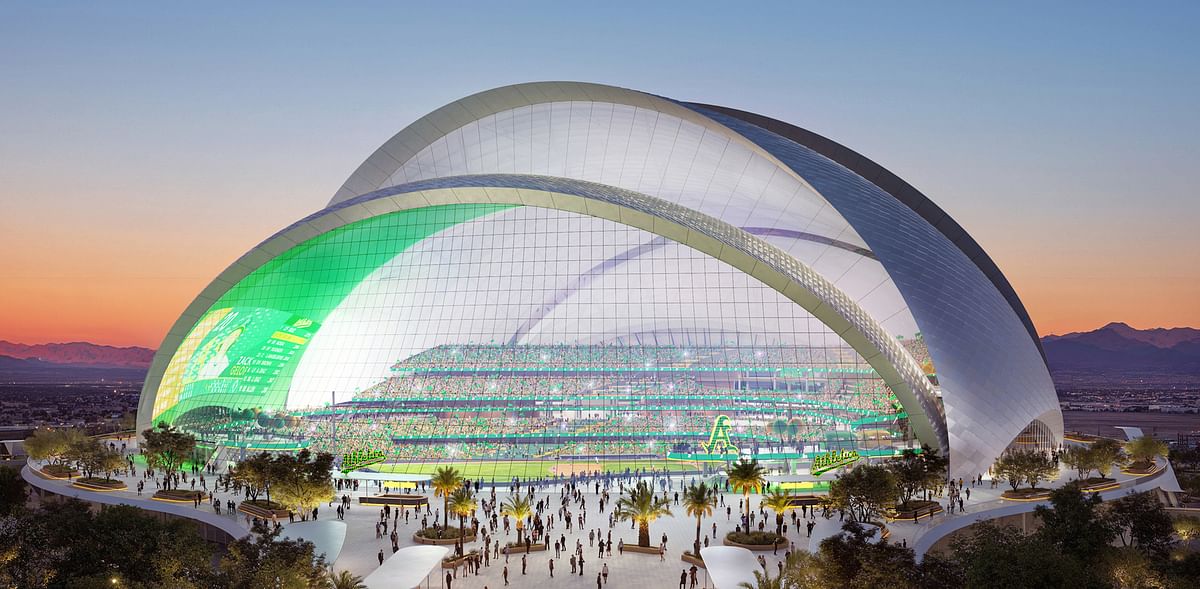BIG and HNTB team up to propose new Oakland Athletics stadium for Las Vegas relocation
The Bjarke Ingels Group and HNTB-led design of a stadium for the Oakland Athletics in Las Vegas has been published for the first time since the Major League Baseball franchise formalized its intention to relocate from the Bay Area to Nevada in time for the start of the 2028 season. The first renderings of the new ballpark reveal an enclosed dome design framed by a north-looking panoramic view of Las Vegas attractions, made possible by the world’s largest cable-net glass wall in left field. This creates the same city-stadium "living room" effect seen in other modern ballpark designs, such as Baltimore's Camden Yards and the new LoanDepot Park in Miami.A retractable roofline is created by five overlapping shells that are designed to resemble baseball pennants. This allows for the sun's harshest glares to be directed away from the playing surface, which is flooded by softer natural light from outside of clerestory windows. Fans will enter and be oriented to the stadium via a large glass atrium that connects with a grand concourse meant literally to "pull the city into the venue."Read the full post on Bustler


The Bjarke Ingels Group and HNTB-led design of a stadium for the Oakland Athletics in Las Vegas has been published for the first time since the Major League Baseball franchise formalized its intention to relocate from the Bay Area to Nevada in time for the start of the 2028 season.
The first renderings of the new ballpark reveal an enclosed dome design framed by a north-looking panoramic view of Las Vegas attractions, made possible by the world’s largest cable-net glass wall in left field. This creates the same city-stadium "living room" effect seen in other modern ballpark designs, such as Baltimore's Camden Yards and the new LoanDepot Park in Miami.
A retractable roofline is created by five overlapping shells that are designed to resemble baseball pennants. This allows for the sun's harshest glares to be directed away from the playing surface, which is flooded by softer natural light from outside of clerestory windows. Fans will enter and be oriented to the stadium via a large glass atrium that connects with a grand concourse meant literally to "pull the city into the venue."
Read the full post on Bustler
